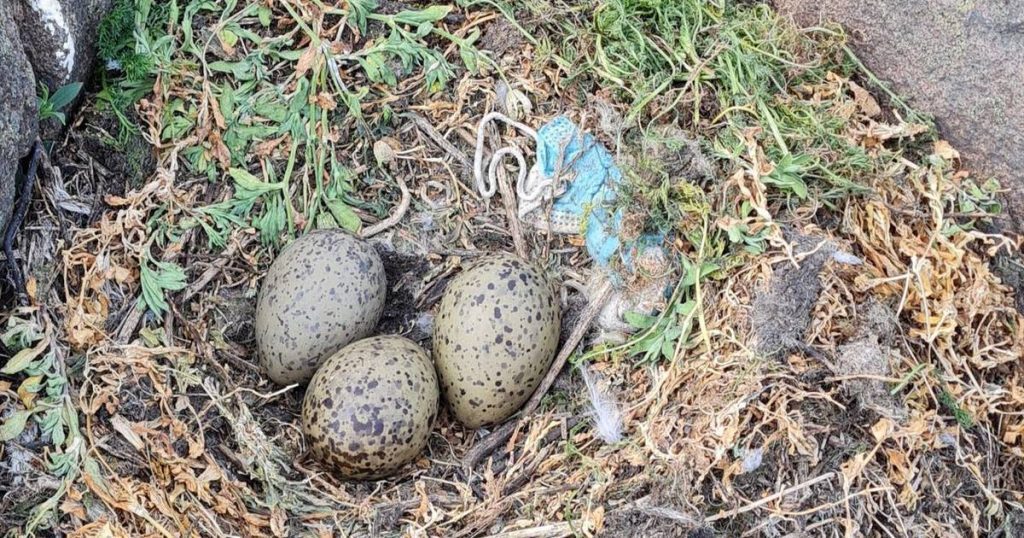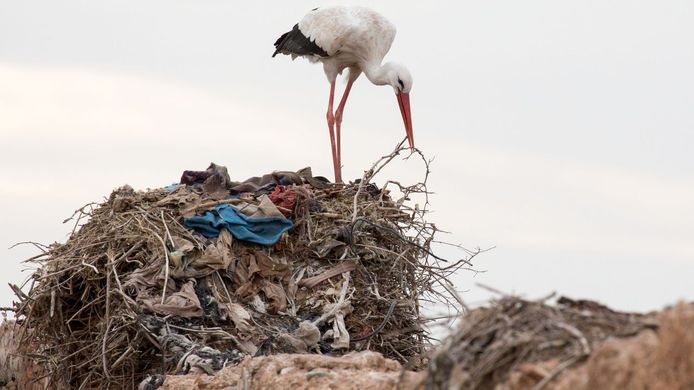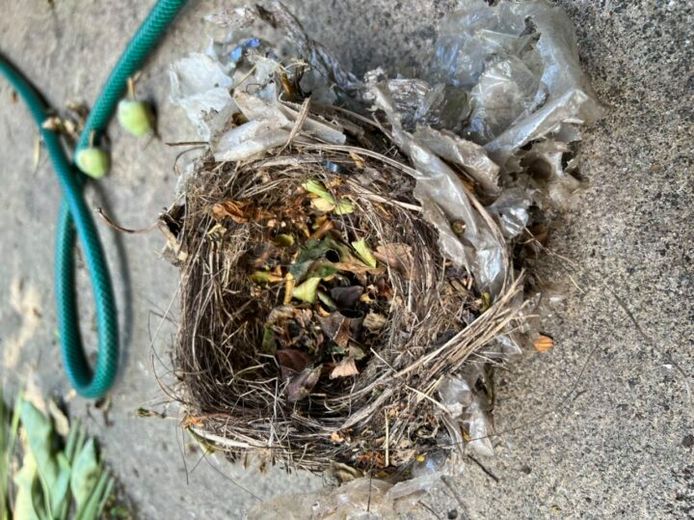Plastic pollution has always plagued our nature. But since the Corona pandemic, a lot of protective materials – such as mouth masks – have also appeared in animals, and in birds in particular. Not only can birds get bogged down in it, but they also use the waste to make their nests, according to International Study.
Online Science Project birds and debris Collects photos from around the world of birds coming into contact with waste. Almost a quarter of the photos show birds trapped in protective gear, mostly single-use face masks, the researchers said.
The project, led by scientists from the Environmental Research Institute, part of Scotland’s North Highland College (UHI), will run for four years. More than 400 reports have already been collected from all over the world. For example, there is a photo of a herring gull with a plastic bag on its leg, a bird’s nest in Bogota (Colombia) with plastic rope and a dead heron in Mauritania with a fishing net wrapped around its beak.
According to British scientist Alex Bond, plastic waste from birds is a “global problem”. “If you look for it, you will find it everywhere,” he explains to the BBC. Most of the scenes were in the US, UK, Canada and Australia, but there were also images from 23 other countries, including Germany, France, Finland, India and Italy. “It’s almost always about face masks,” Bond says.
It is estimated that at the height of the pandemic, 129 billion face masks and 65 billion gloves were used worldwide each month. Previous research indicated that about 1.6 billion disposable masks will end up in the ocean by 2020.
Scientists hope that the authorities will learn lessons from this. It is clear that waste management needs to be much better. Because even though mouth masks are no longer required in most places in the world, unfortunately this protective gear will be lying around in nature for a long time.
Microplastics
Most protective gear contains plastic and it can take decades or even centuries to degrade. When the mouth masks around them eventually disintegrate, microplastics end up in the food chain. In this way, the environmental problem threatens to haunt us for a long time to come.
The first sightings of a bird entwined in a mouth mask took place in Canada in April 2020, the researchers said, and since then these sightings have gained “international momentum”. They also encourage people to report injured or entangled birds to a local vet or shelter.
Unlimited free access to Showbytes? And that can!
Sign in or create an account and never miss a thing from the stars.

“Creator. Award-winning problem solver. Music evangelist. Incurable introvert.”










More Stories
British military spy satellite launched – Business AM
Alarming decline in the Caspian Sea
Lithuania begins construction of military base for German forces